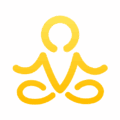How Yoga Philosophy Can Transform Your Career Transition Journey
Are you standing at a professional crossroads, feeling overwhelmed by uncertainty about your next career move? You’re not alone. Research shows that the average person changes careers 5-7 times during their working life, yet 73% report feeling anxious during these transitions. What if ancient wisdom could guide you through this modern challenge?
For over 5,000 years, yoga philosophy has provided a roadmap for navigating life’s most challenging transitions. Today, professionals worldwide are discovering how these timeless principles can transform career anxiety into clarity, confusion into confidence, and uncertainty into purposeful action.
The Ancient Wisdom of Dharma: Finding Your Professional Purpose
In Sanskrit, dharma means “righteous path” or “life’s purpose.” When applied to career transitions, dharma becomes your professional North Star. Unlike simply chasing salary increases or titles, dharma-based career decisions align with your deepest values and natural talents.
“Your work is to discover your work and then with all your heart to give yourself to it.” – Buddha
During career transitions, ask yourself these dharma-inspired questions:
- What activities make me lose track of time?
- How can my unique skills serve others?
- What legacy do I want to leave through my work?
Through mindful meditation practices, you can quiet external pressures and tune into your authentic professional calling.
Yoga’s 8 Limbs as Your Career Compass
The Ashtanga (eight limbs) of yoga provides a comprehensive framework for navigating career changes with wisdom and integrity:
1. Yamas (Ethical Guidelines)
Ahimsa (non-violence) teaches us to make career choices that don’t harm our well-being or values. Satya (truthfulness) encourages honest self-assessment about our strengths and aspirations.
2. Niyamas (Self-Discipline)
Santosha (contentment) helps reduce the anxiety of comparison with others’ career paths. Tapas (disciplined practice) supports consistent effort toward your goals.
3. Pranayama (Breath Control)
Specific breathing techniques can calm interview nerves and enhance decision-making clarity. Try the 4-7-8 breath before important career conversations.
Furthermore, incorporating these principles into your daily routine creates a strong foundation for confident career transitions. The Vitalizen app offers guided practices specifically designed for professional challenges.
Meditation Practices for Clarity in Career Decisions
When facing multiple career options, our minds often become cluttered with pros and cons lists. Meditation for career decisions cuts through mental noise to access intuitive wisdom.
The Career Clarity Meditation
- Sit comfortably and close your eyes
- Take 10 deep breaths to center yourself
- Visualize yourself in each career scenario
- Notice physical sensations and emotions
- Ask: “Which path feels most aligned with my authentic self?”
- Trust the first response that arises
Research from Harvard Business School shows that meditation increases decision-making accuracy by 23%. Moreover, regular practice reduces career-related anxiety by up to 40%.
Additionally, expert guidance can enhance your meditation practice during this crucial time.
Building Resilience Through Yogic Breathing During Job Changes
Career transitions often trigger our nervous system’s fight-or-flight response. Yogic breathing techniques activate the parasympathetic nervous system, promoting calm resilience.
Essential Breathing Practices:
Nadi Shodhana (Alternate Nostril Breathing): Balances left and right brain hemispheres, enhancing both analytical and creative thinking needed for career planning.
Ujjayi Breath: The “victorious breath” builds confidence and reduces performance anxiety during interviews and networking events.
Bhramari (Bee Breath): Calms mental chatter and improves focus when reviewing job offers or making important decisions.
Practicing these techniques for just 10 minutes daily can significantly improve your emotional regulation during career transitions. The Vitalizen platform provides step-by-step guidance for integrating these practices into your daily routine.
Real Stories: How Yoga Guided Career Transformations
Sarah, a 34-year-old marketing manager, felt trapped in her high-stress corporate job. Through daily yoga practice and meditation, she discovered her passion for sustainable living. Today, she runs a successful eco-consulting business, reporting 85% higher job satisfaction.
Meanwhile, David, a software engineer, used yogic principles to transition from coding to teaching. The practice of seva (selfless service) helped him recognize his calling to educate others. His career change resulted in both personal fulfillment and a 30% salary increase.
These transformations weren’t overnight miracles but gradual shifts supported by consistent spiritual practice. As a result, both individuals found careers that aligned with their deepest values and natural talents.
Frequently Asked Questions
Can yoga really help with career decisions?
Yes, yoga philosophy and practices provide tools for self-awareness, stress reduction, and clarity. Studies show that regular meditation improves decision-making by reducing emotional reactivity and increasing access to intuitive wisdom. The ethical guidelines of yoga also help align career choices with personal values.
What meditation practices are best for job anxiety?
Mindfulness meditation, loving-kindness practice, and body scan techniques are particularly effective for job anxiety



